Publishing Talks: David Wilk interviews Eugene Schwartz
June 9, 2013 by David
Filed under Ebooks and Digital Publishing, Publishing History, PublishingTalks, Technology, The Future
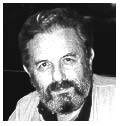 In this series of interviews, called Publishing Talks, I have been talking to book industry professionals and other smart people about the future of publishing, books, and culture. This is a period of disruption and change for all media businesses. We must wonder now, how will publishing evolve as our culture is affected by technology, climate change, population density, and the ebb and flow of civilization and economics?
In this series of interviews, called Publishing Talks, I have been talking to book industry professionals and other smart people about the future of publishing, books, and culture. This is a period of disruption and change for all media businesses. We must wonder now, how will publishing evolve as our culture is affected by technology, climate change, population density, and the ebb and flow of civilization and economics?
I hope these Publishing Talks conversations can help us understand the outlines of what is happening in the publishing industry, and how we might ourselves interact with and influence the future of publishing as it unfolds.
These interviews give people in and around the book business a chance to talk openly about ideas and concerns that are often only talked about “around the water cooler,” at industry conventions and events, and in emails between friends and they give people inside and outside the book industry a chance to hear first hand some of the most interesting and challenging thoughts, ideas and concepts being discussed by people in the book business.
Gene Schwartz has been an active participant in the publishing business for many years. I first knew him as the ubiquitous representative of the magazine Foreword, covering every possible book and technology event for the benefit of independent publishers. He still works as editor at large of Foreword Reviews. He is an industry observer, an occasional blogger and columnist for Book Business magazine, a member of its editorial advisory board and its Publishing Business Conference and Expo Advisory Board. He heads his own publishing consultancy, Consortium House, and is currently engaged in new business development projects for Waterside Productions, He is also notably co-founder of Worthy Shorts Inc., an innovative online private press and publication service for professionals , publishers and associations
In an earlier career, he was in the printing business, directed production at Random House and CRM Books/Psychology Today and was director of production and operations for Prentice-Hall/Goodyear. He is a former PMA (IBPA) board member and founder of the San Diego Publishers Group.
Schwartz has a civil engineering degree from CCNY and completed graduate course work in public administration at NYU, so like many of us in the publishing business, he came to this business from a very different background.
I thought it would be valuable to talk to Gene about publishing, past, present, and future, since he has been involved in so many different aspects of the business over such a long period of time. He is consistently perceptive about the way technology and change can be harnessed by publishers and others in the book business, and has a terrifically tuned critical sensibility that he can bring to bear on any subject. We had a great talk and covered a wide range of subjects in this interview.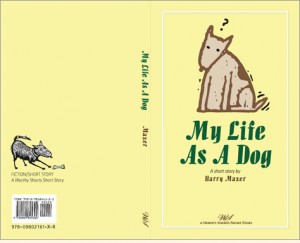
Podcast: Play in new window | Download
Publishing Talks: David Wilk interviews Glenn Nano
April 6, 2013 by David
Filed under Ebooks and Digital Publishing, PublishingTalks, Technology, The Future
 In this series of interviews, called Publishing Talks, I have been having conversations with both book industry professionals and others with interesting perspectives about the future of publishing, books, and culture. This is a period of disruption and change for all media businesses. We must wonder now, how will publishing evolve as our culture is affected by technology, climate change, population density, and the ebb and flow of civilization and economics?
In this series of interviews, called Publishing Talks, I have been having conversations with both book industry professionals and others with interesting perspectives about the future of publishing, books, and culture. This is a period of disruption and change for all media businesses. We must wonder now, how will publishing evolve as our culture is affected by technology, climate change, population density, and the ebb and flow of civilization and economics?
I hope these Publishing Talks conversations can help us understand the outlines of what is happening in, around and to the publishing industry, and how we might ourselves interact with and influence the future of publishing and culture as our interesting present unfolds into the future.
These interviews give people in and around the book business a chance to talk openly about ideas and concerns that are often only talked about “around the water cooler,” at industry conventions and events, and in emails between friends and they give people inside and outside the book industry a chance to hear first hand some of the most interesting and challenging thoughts, ideas and concepts being discussed by people in the book business.
Glenn Nano is a truly amazing guy I ran across first when he founded Code Meet Print, a “community at the intersection of texts + technology that will contemplate, define, and help build better interfaces for engagement, more relevant curators for discovery, and more useful marketplaces for dissemination of great writing and content to eager readers.” And at Tools of Change this year in New York, I had the pleasure of moderating a panel called “Beyond Devices: Is The Real Value of eBooks Social Engagement?” on which Glenn appeared, and impressed me with his incisive and original thinking.
Evidently, Glenn is a serial entrepreneur who brings great ideas into being, or spurs them forward. Aside from CodeMeetPrint, he also created Dictator Goods (you have to visit this site), was a principal at Centurion Venture Partners, and most recently engineered a very interesting start up called AnswerQi (“tech answers from real experts in real-time”, which I think is taking up most of his abundant energy for the moment.
As Glenn wrote in the introduction to Code Meet Print: “Words are finding new modalities, and innovators across disciplines have begun to experiment with how technology might improve their creation, curation, and consumption.” This sums up very nicely what so many people involved in writing, publishing and reading are trying to understand right now.
I am very pleased to have had the opportunity to talk with Glenn about his views of the current state of publishing, storytelling and writing, and his views about where we are headed. I think you will find this conversation to be among the most interesting on these now well-worn subjects that you will hear or read. Glenn thinks about the digital present in a way that I think alot of people whose roots are in traditional publishing simply do not natively understand. So there is always something for us to learn from what he has to say.
Alert to listeners, we were having alot of fun talking, so this interview runs longer than usual at 46 minutes. 
Podcast: Play in new window | Download
Publishing Talks: David Wilk interviews CLMP Director Jeffrey Lependorf
December 20, 2012 by David
Filed under Ebooks and Digital Publishing, Publishing History, PublishingTalks, The Future
 In this series of interviews, called Publishing Talks, I have been talking to book industry professionals and other smart people about the future of publishing, books, and culture. This is a period of disruption and change for all media businesses. We must wonder now, how will publishing evolve as our culture is affected by technology, climate change, population density, and the ebb and flow of civilization and economics?
In this series of interviews, called Publishing Talks, I have been talking to book industry professionals and other smart people about the future of publishing, books, and culture. This is a period of disruption and change for all media businesses. We must wonder now, how will publishing evolve as our culture is affected by technology, climate change, population density, and the ebb and flow of civilization and economics?
I hope these Publishing Talks conversations can help us understand the outlines of what is happening in the publishing industry, and how we might ourselves interact with and influence the future of publishing as it unfolds.
These interviews give people in and around the book business a chance to talk openly about ideas and concerns that are often only talked about “around the water cooler,” at industry conventions and events, and in emails between friends and they give people inside and outside the book industry a chance to hear first hand some of the most interesting and challenging thoughts, ideas and concepts being discussed by people in the book business.
Jeffrey Lependorf has an unusual perspective on publishing. He is the Executive Director of two nonprofit organizations: both the New York City based Council of Literary Magazines (CLMP) and the Berkeley, California based Small Press Distribution (SPD). CLMP provides support services to and advocacy for literary magazines and independent literary presses, while SPD provides distribution and sales services to the same general constituency (though not always the same presses and magazines). Both organizations have been on the scene for many, many years and their identities and services have changed significantly over time.
While the overall publishing industry has undergone sea changes in physical retailing and wholesaling that have created challenges for commercial publishers, those changes have caused massive disruption for hundreds of smaller literary presses and magazines, mostly by reducing their retail viability and forcing them to look for other means of reaching readers, including innovative approaches to digital publishing and direct to consumer sales. Independent presses and magazines may be quietly creating some incredibly valuable and interesting approaches to connecting with readers that could provide long lasting benefits for them, and models for larger publishers to emulate.
In this conversation, I took advantage of Lependorf’s unique perspective to discuss the past, present and future of independent literary publishing, both books and magazines, as well as some of the digital initiatives they have undertaken, and the specific activities of both the organizations he operates. It’s worth visiting both the CLMP and SPD websites. If you’re interested in what independent publishers are doing, CLMP has alot of information; if you’d like to see the books and magazines (and ebooks) that independent publishers are producing, visit SPD, where, it is important to note, you can browse and buy thousands of unusual and important publications directly (even though they also distribute to retailers like Amazon, B&N and many independent bookstores). Support independent literary publishing by buying their books whenever you can.
By the way, Lependorf has another career as a composer and performer whose work I also admire. Amazing stuff from an amazing person!
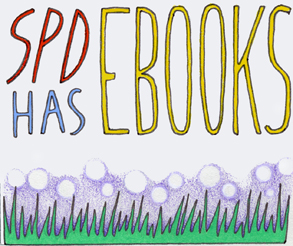 ALERT: this is another relatively long podcast, just over 43 minutes, but I believe it’s well worth your time.
ALERT: this is another relatively long podcast, just over 43 minutes, but I believe it’s well worth your time.
Podcast: Play in new window | Download
Publishing Talks: David Wilk interviews Matt Cavnar
June 27, 2012 by David
Filed under Ebooks and Digital Publishing, PublishingTalks, The Future
 In this series of interviews, called Publishing Talks, I talk to book industry professionals and other smart people about the future of publishing, books, and culture. This is a period of disruption and change for all media businesses. How will publishing evolve as our culture is affected by technology, climate change, population density, and the ebb and flow of civilization and economics?
In this series of interviews, called Publishing Talks, I talk to book industry professionals and other smart people about the future of publishing, books, and culture. This is a period of disruption and change for all media businesses. How will publishing evolve as our culture is affected by technology, climate change, population density, and the ebb and flow of civilization and economics?
I hope these Publishing Talks conversations will help us better understand the outlines of what is happening in publishing, books and reading culture, and how we can ourselves both understand and influence the future of books and reading.
I’ve been thinking alot lately about the evolution of ebook building. My friends Ron Martinez and Nick Ruffilo at Aerbook and Hugh McGuire at PressBooks, have also built on this kind of concept, in Aerbook’s case a cloud based authoring tool that is highly sophisticated and probably best used by experienced book designers (called Aerbook Maker), and in PressBooks’ model a WordPress based authoring tool that enables writers and editors to collaborate in the cloud to build books from scratch. Barnes & Noble has created a tool for publishers who want to build fixed page children’s books for their own device, the Nook. This seems like a growing trend, presaged by what happened years ago in the realm of desktop publishing (which resulted in today’s powerful tools, InDesign and Quark – and InDesign now can even be used to make ebooks), making it possible for book designers to do incredible work with powerful, economical tools.
The received wisdom about ebooks with video and audio features is that they don’t sell all that well, at least compared to straight text or even just books with illustrations. And since they have had to be built more or less by hand as one off productions, they have had significantly higher costs of production. With low sales and high cost of production, the ROI for publishers for these sorts of ebooks has been mostly terrible.
That has meant that relatively few such books have been published. Which of course has meant that there has been relatively little audience development for ebooks that combine text, illustrations, audio and video features, and perhaps also. By streamlining the process of ebook building and empowering creators, these tools will reduce the cost of deploying ebooks with integrated audio and video elements, improve design, and hopefully increase the level of interest in enhanced ebooks by attracting more creativity on the production side. One might imagine that a meaningful increase in the number of these kinds of enhanced or “app-like” ebooks in the various e-bookstores, will also increase the interest of readers for them, and thus more sales. And of course we can also hope for more marketing commitment from the device manufacturers themselves and better software and hardware to enable readers to more readily enjoy this expected increase in creativity on the author and publisher side of the equation (Amazon, Barnes & Noble, and Apple, are you listening?)
As a proponent of enhanced ebooks, I’d like to believe that with relatively lower cost of production, and more platform support, we will indeed see an increase in output of these kinds of ebooks, and that a great upsurge of creative, meaningful use of audio and video in books will really “enhance” the usefulness and popularity of these kinds of ebooks for readers.
Matt Cavnar is the VP of Business Development for Vook, a company that is now offering their own sophisticated ebook publishing tool for authors and publishers. When the company started in 2009, it set out to provide video-enabled ebooks to the reading public. Over the past three years the company has produced hundreds of ebooks of all different kinds. During that time, they soon realized that acting simply as a production company, they could never achieve the kind of scale they really hoped for, so over the past year or so, Vook’s staff took everything they had learned about making ebooks, and built a toolset that virtually anyone can use to make great ebooks.
Matt is a passionately committed to books, and especially to ebooks, and to expanding their reach. In the course of our conversation, we talked first about the Vook platform and the tools it offers to users, and then went on from there to talk broadly about the current and evolving state of digital publishing, informed by Matt’s hands on experience working with ebooks and their creators for the past several years. This conversation should be valuable to anyone involved in publishing, whether ebooks are your primary interest or not, but especially if you are interested in seeing where the nuts and bolts of ebook creation have gone in mid-2012.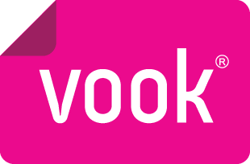
Podcast: Play in new window | Download
Publishing Talks: David Wilk interviews Brian O’Leary about The Opportunity in Abundance
March 18, 2012 by David
Filed under Ebooks and Digital Publishing, PublishingTalks, Technology, The Future
 In this series of interviews, called Publishing Talks, I talk to book industry professionals and other smart people about the future of publishing, books, and culture. This is a period of disruption and change for all media businesses. How will publishing evolve as our culture is affected by technology, climate change, population density, and the ebb and flow of civilization and economics?
In this series of interviews, called Publishing Talks, I talk to book industry professionals and other smart people about the future of publishing, books, and culture. This is a period of disruption and change for all media businesses. How will publishing evolve as our culture is affected by technology, climate change, population density, and the ebb and flow of civilization and economics?
I hope these Publishing Talks conversations will help us better understand the outlines of what is happening in publishing, books and reading culture, and how we can ourselves both understand and influence the future of books and reading.
Brian O’Leary’s Magellan Media provides research, benchmarking and business planning services that help smaller and medium-sized publishers manage and grow their top- and bottom-line results. Magazine, book and association publishers often engage Magellan to improve their content workflows across platforms and uses.
Brian frequently is called on to make industry presentations and he blogs regularly about critical matters in publishing (both for books and magazines). I follow his work closely. One of the pieces he published in October, 2011, called the Opportunity in Abundance, spurred me to talk to him once again for Publishing Talks. Today we live in an age of content abundance. Most publishers realize this as it affects them on a daily basis.
Brian has laid out an analysis of content abundance that I think will enable publishers to make sense of this new reality, and how to work successfully within it. His understanding of digital content should help publishers create their own contextual framework for thinking about how to do business in a radically new environment. It’s a great piece to read (as are his related essays), and this interview should help amplify and explain further some of his ideas. Of course, we did not always stick to the subject at hand, but were able to cover a wide range of related ideas that I hope will be interesting and useful to anyone interested in the current state of the publishing business.
Here is the specific link to his essay The Opportunity in Abundance. Brian is a terrific writer – he’s always able to be clear, insightful and understandable. I recommend reading through the archives at Magellan Media. And I also interviewed him in 2009, when we talked about piracy, another issue he has written about with great incisiveness.
Podcast: Play in new window | Download
Publishing Talks: David Wilk interviews Lou Aronica of Fiction Studio Books
March 4, 2012 by David
Filed under Ebooks and Digital Publishing, Publishing History, PublishingTalks, Technology, The Future
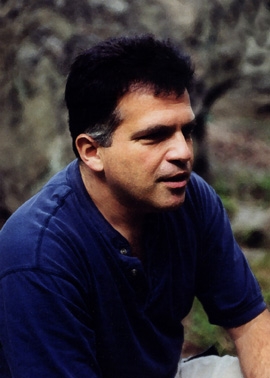 In this series of interviews, called Publishing Talks, I talk to book industry professionals and other smart people about the future of publishing, books, and culture. This is a period of disruption and change for all media businesses. How will publishing evolve as our culture is affected by technology, climate change, population density, and the ebb and flow of civilization and economics?
In this series of interviews, called Publishing Talks, I talk to book industry professionals and other smart people about the future of publishing, books, and culture. This is a period of disruption and change for all media businesses. How will publishing evolve as our culture is affected by technology, climate change, population density, and the ebb and flow of civilization and economics?
I hope these Publishing Talks conversations will help us better understand the outlines of what is happening in publishing, books and reading culture, and how we can ourselves both understand and influence the future of books and reading.
Lou Aronica is a long-time editor and publisher who left commercial publishing some years ago and then built a new career as a writer. In fact, I interviewed him in 2011 about his excellent fantasy sci-fi novel, Blue. Lou has been very successful as a writer and freelance editor. But over the past couple of years, Lou has continued exploring his publishing interests, most recently by founding a digital-first publishing imprint called Fiction Studio Books.
(I do recommend visiting his site and reading what he has to say about publishing in general and what Fiction Studio is all about).
Fiction Studio offers a different and in many ways unique model for writers. Lou is bringing to bear the most important traditional values of publishing – editorial and author development – that so many publishers today are no longer able or willing to provide in commercial publishing. By concentrating on quality and eliminating the overhead costs of print publishing, he has been able to begin to sketch out a workable structure for digital publishing of mainstream fiction that may be a useful model for the future, where the publisher provides real value and services that make sense for authors and readers. Lou calls this a “publishing culture” that benefits the books and the writers he publishes.
Importantly, Fiction Studio is selling a significant number of books, enough to make it a profitable business and not just an experiment in digital publishing. In its first year of existence, the imprint issued 14 titles.
Lou and I have often talked informally about the book business and the future. Typically I have learned alot from him and his experiences, past and present and always enjoy our talks. I think what he is doing now with this publishing program is tremendously important and should be inspirational to both publishers and authors.
Our conversation here covers a wide range of ideas and concepts drawn from his experience and reflecting his expansive vision of what a born-digital publishing company can and should look like. We talked about trends in digital publishing, how the role of the publisher is changing, the importance of editing and developing writers in the new digital marketplace, what makes a publisher meaningful and valuable to authors and to writers, ebook pricing models, and much, much more in this very wide-ranging conversation. To learn more, go to the website and read his essay about why he is publishing and the very active and interesting blog written by Fiction Studio authors as well.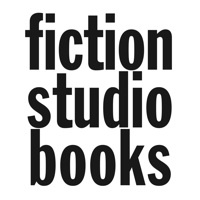
Podcast: Play in new window | Download
Publishing Talks: David Wilk interviews Miral Sattar about BiblioCrunch
November 28, 2011 by David
Filed under Ebooks and Digital Publishing, PublishingTalks, Technology, The Future
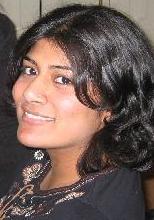 In this series of interviews, called Publishing Talks, I talk to book industry professionals and other smart people about the future of publishing, books, and culture. This is a period of disruption and change for all media businesses. How will publishing evolve as our culture is affected by technology, climate change, population density, and the ebb and flow of civilization and economics?
In this series of interviews, called Publishing Talks, I talk to book industry professionals and other smart people about the future of publishing, books, and culture. This is a period of disruption and change for all media businesses. How will publishing evolve as our culture is affected by technology, climate change, population density, and the ebb and flow of civilization and economics?
I hope these Publishing Talks conversations will help us better understand the outlines of what is happening in publishing, books and reading culture, and how we can ourselves both understand and influence the future of books and reading.
Miral Sattar is a young serial entrepreneur with roots in the publishing business. She is the Founder of Divanee.com and Weddings.Divanee.com and has worked in the media industry for 10 years. Ms. Sattar is a contributor for Time, teaches entrepreneurial journalism sessions at CUNY, and has contributed to Metro and Jane Magazine. She graduated from Columbia University’s School of Engineering and Applied Science, and recently earned an M.S. in Digital + Print Media.
In many ways Miral represents the future of the book business. She’s had innovative and smart ideas for new products and new uses of digital technology to create new ways for readers and writers to interact. Failing to gain any traction for her ideas within traditional publishing institutions, she set out on her own to build what she believes writers and readers want and need, a new and different publishing/reading platform called BiblioCrunch. There’s alot to be interested in here if you are looking for ways that online publishing can be made simple.
From the BiblioCrunch.com website:
What is BiblioCrunch.com?
BiblioCrunch.com is a platform that empowers writers and publishers to create and market their own manuscripts, completed works, digital books and bookazines. Through our platform anyone – bloggers, authors, aspiring writers, students, writers, journalists, publishers – can share their stories.
• You can create all your great books online through our easy interface in any format any eReader!
• Once you’ve written all the chapters for your book you can either post it for FREE or start SELLING.
• You can start SHARING your book via social media so others can download your book.
• VOTE your book to the top by sharing it with all your friends.
• Need to hire an EDITOR or DESIGNER? Why not connect with someone in the MEMBERS community to help edit your book and design an awesome cover.
Why use BiblioCrunch.com?
• BiblioCrunch is the place for you to write, read, and distribute your favorite books in just a few steps.
• Create virtual bookshelves, discover new books, connect with friends and learn more about your favorite books – all for free.
• On BiblioCrunch.com you can connect with writers, publishers, readers, editors, copyeditors, and designers to create the best books.
• We’re also cheaper than other services that take 30% of each book sold.
•
How can I share my books?
• Each book has it’s own public download page that you can share on Twitter and Facebook.
Building tools that make it easy for people to publish their work and for readers to read it is really a publishing function. As with many other sites, the idea here is that readers can decide for themselves what they want to read. It will be interesting to see if, as some traditionally minded digerati have suggested, that the editorial or curatorial role will be needed, perhaps more than ever, but if so, my guess is that it will develop in different ways, based on the different understanding of the editorial function that today’s writers and readers have developed.
I wanted to talk to Miral about BiblioCrunch because I am always interested in new ideas and constructs, and also because I think the story she tells about the genesis and plans for this site will be instructive and valuable to others in the book universe. And hopefully, her ideas might generate some additional thinking about how platforms, innovation and audiences for reading will develop in the near future.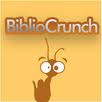 Creating a new publishing platform is no small feat, but the real challenge will be to attract readers and writers in significant numbers. I’m hoping this site will succeed through innovation and creativity, as a healthy publishing ecosystem requires a wide variety of niches, large and small.
Creating a new publishing platform is no small feat, but the real challenge will be to attract readers and writers in significant numbers. I’m hoping this site will succeed through innovation and creativity, as a healthy publishing ecosystem requires a wide variety of niches, large and small.
Podcast: Play in new window | Download
Publishing Talks: David Wilk Interviews Peter Costanzo
August 14, 2011 by David
Filed under Ebooks and Digital Publishing, PublishingTalks, Technology, The Future
 In this ongoing series of interviews, called Publishing Talks, I have been talking to book industry professionals and other smart people about the future of publishing, books, and culture. This is a period of disruption and change for all media businesses. We must wonder now, how will publishing evolve as our culture is affected by technology, climate change, population density, and the ebb and flow of civilization and economics?
In this ongoing series of interviews, called Publishing Talks, I have been talking to book industry professionals and other smart people about the future of publishing, books, and culture. This is a period of disruption and change for all media businesses. We must wonder now, how will publishing evolve as our culture is affected by technology, climate change, population density, and the ebb and flow of civilization and economics?
I believe that these Publishing Talks conversations can help us understand the outlines of what is happening in the publishing industry, and how we might ourselves interact with and influence the future of publishing as it unfolds.
These interviews give people in and around the book business a chance to talk openly and broadly about ideas and concerns that are often only talked about “around the water cooler,” at industry conventions and events, and in emails between friends. These conversations give people inside and outside the book industry a chance to hear first hand some of the most interesting and challenging thoughts, ideas and concepts being discussed by active participants in the book business.
I’ve known Peter Costanzo for a number of years (and have worked with him on a few projects) – I have always been impressed with his intelligence and his insightful understanding of online media and digital publishing. Peter is now the Director of Digital Content for F+W Media where he is in charge of a diverse and creative set of digital initiatives. Since he is now directing content and production for a publisher that has made a deep commitment to digital publishing, I wanted to talk to him in depth about ebooks, apps and online marketing, from his perspective as a producer as well as a consumer and keen observer of the digital publishing scene.
Peter has been involved in online bookselling for longer than most people in our industry. He began selling autographed books online in 1996. By 1998 he became the Online Retail Marketing Manager for HarperCollins. He then worked at Random House as Online Marketing Manager for the Audiobooks division, and in 2001 became Director of Online Merchandising for Steve Brill’s Contentville, one of the first online retailers to sell e-books. After that he became the Director of Online Marketing for Perseus Books for several years, before moving to F + W Media. He also teaches the “Introduction to Interactive Media” course at NYU. You can follow Peter on Twitter @PeterCostanzo and read his personal blog BookCurrents.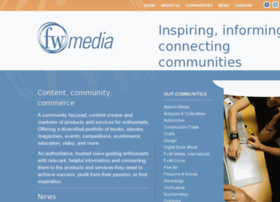
Peter has a lot of important things to say in this discussion that anyone interested in digital publishing will find useful and compelling.
Podcast: Play in new window | Download
Publishing Talks: David Wilk interviews Kate Wilson
July 11, 2011 by David
Filed under Ebooks and Digital Publishing, PublishingTalks, The Future
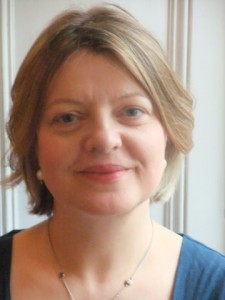 In this ongoing series of interviews, called Publishing Talks, I have been talking to book industry professionals and other smart people about the future of publishing, books, and culture. This is a period of disruption and change for all media businesses. We must wonder now, how will publishing evolve as our culture is affected by technology, climate change, population density, and the ebb and flow of civilization and economics?
In this ongoing series of interviews, called Publishing Talks, I have been talking to book industry professionals and other smart people about the future of publishing, books, and culture. This is a period of disruption and change for all media businesses. We must wonder now, how will publishing evolve as our culture is affected by technology, climate change, population density, and the ebb and flow of civilization and economics?
I believe that these Publishing Talks conversations can help us understand the outlines of what is happening in the publishing industry, and how we might ourselves interact with and influence the future of publishing as it unfolds.
These interviews give people in and around the book business a chance to talk openly about ideas and concerns that are often only talked about “around the water cooler,” at industry conventions and events, and in emails between friends and they give people inside and outside the book industry a chance to hear first hand some of the most interesting and challenging thoughts, ideas and concepts being discussed by people in the book business.
I was recently introduced to the apps and books created by the new UK based children’s publisher Nosy Crow. I bought their first app, the Three Little Pigs and immediately understood that this company had a vision and an approach that made sense to me. Here is the message from their website that caught my attention right way:
“We make innovative, multimedia, highly interactive apps for tablets, smart phones and other touchscreen devices. These apps are not existing books squashed onto phones, but instead are specially created to take advantage of the devices to tell stories and provide information to children in new and engaging ways.” Books too by the way.
When I finally got a chance to talk to company founder Kate Wilson, I found out right away why the company is so smart, and off to such a great start. I believe that Kate deeply understands how technology and publishing can and will intersect for the creation of great experiences for children readers. She has a vision, one that makes sense, and she has combined creativity with a keen sense of what parents and children want both from new technologies and from traditional books. And her experience in publishing has taught her important lessons which she is now applying in this new publishing space (after attending Oxford University, she worked for a number of UK children’s publishers, including Macmillan Children’s and Scholastic UK, both of which she ran. If you are interested in how children’s publishing is going to evolve, I suggest paying close attention to Nosy Crow, and of course listening to this conversation with Kate Wilson.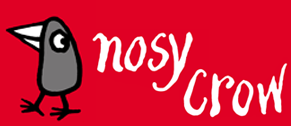
Podcast: Play in new window | Download
Slowing Down for the Summer
 I have been posting two podcasts a week for the better part of the last year, which has been great fun. But with the summer in full swing, weather wonderful and plenty of work in the hopper, it looks like I may be posting slightly less frequently for the next couple of months. I’m not reading fewer books, but scheduling interviews seems to be more difficult in the summer too. And publishers and technologists take vacations! I do have some really good interviews coming along soon: Anna Lappe, Nick Mamatas, Dean Bakopoulos among other writers, and Kate Wilson of the great new kids publisher Nosy Crow for Publishing Talks. And there will be more.
I have been posting two podcasts a week for the better part of the last year, which has been great fun. But with the summer in full swing, weather wonderful and plenty of work in the hopper, it looks like I may be posting slightly less frequently for the next couple of months. I’m not reading fewer books, but scheduling interviews seems to be more difficult in the summer too. And publishers and technologists take vacations! I do have some really good interviews coming along soon: Anna Lappe, Nick Mamatas, Dean Bakopoulos among other writers, and Kate Wilson of the great new kids publisher Nosy Crow for Publishing Talks. And there will be more.
I’ve also started a new website I hope you will visit – it’s called New Book Media (newbookmedia.com) featuring a long list of digital book events around the world, and a steady stream of news and information about the wildly expanding world of digital publishing. Livewriters.com now has more than 2500 book and author related videos, and is still the only website focused exclusively on video about books, along with an entertaining and original literary blog called LiveWires.
If you’ve read a great book lately I want to know about it. Direct message your recommendations to @writerscast.
